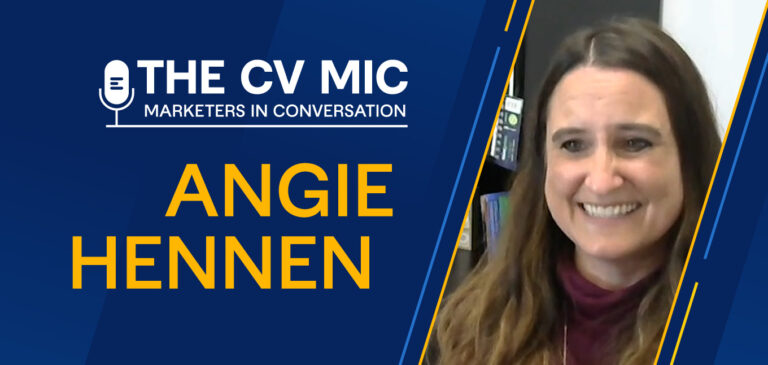Nobody can go it alone. Not even when you’re a digital nomad floating around the world, tethered only by CMS and a bank routing number. There are people in your professional life that you need for financial reasons, people you need for a reference, and one person you need just to accompany you to events.
Here are my picks for eight people you must keep in your life to thrive as a permalancer:

1. Your accountant (or bookkeeper)
If you’re not a numbers person, do not waste time and emotional reserves trying to take care of your monthly bookkeeping, your taxes, or puzzling over a solution to business decisions. Hiring an accountant is the wisest, surprisingly least expensive move you’ll make. Definitely don’t just choose one off the Internet or a sign on a bus stop. Ask around, focusing mainly on colleagues who are basically in the same type of business, and at the same stage in their business that you are — but who just seem to be a bit more buttoned up in terms of financials and business practices. Most likely, it’s their accountant who’s created that tidy facade.
Note, accountants are for the most part not great with social media or self-promotion of any kind. Those with clever blogs are rare, and almost none have social media marketing. So don’t think less of an accountant if they have a minimal website and no social footprint.
2. Your anchor client
Yes, an anchor client is a company, but usually there’s also a particularly close contact in-house there. You depend on this person for monthly income, but you also depend on them to behave, more or less, like a coworker-friend. If you have questions or doubts about how a project is unfolding, you can ask them for insight without being nervous. If you want early, informal feedback on an idea before it goes out to the whole team, you can ask them for it. And if the well is a bit dry that month, you can let them know you have bandwidth and would gladly take on an extra assignment or two.
In a professional dynamic where you never go into the office and typically only exchange minimal, formal communication, this person can feel like a lifeline. And an “anchor client” company offers the closest thing to job security that you can have without finding a tenured or union staff position.
3. Your Creative S.O.
It’s tough to ideate in a void. Your output is typically improved when there’s at least one person on your creative level (your creative significant other) who you can approach any time and ask, “Hey, can we talk through this idea?” Whether you’re official business partners or sometime collaborators or just really good friends — find that like-minded confidante who’s always up to talk ideas, who’s willing to look over your pitches and decks, throw out suggestions you hadn’t thought of, and sometimes fully collaborate on projects with you. (And it goes without saying that you reciprocate on all fronts, including splitting the costs of collaborative spec projects.)
An important piece of advice, especially for those of you with sensitive personalities: Choose a person who offers constructive criticisms or a little dash of “secret sauce” that actually improves your work. As nice as it might be to hear only, “Oh, that’s great, it’s perfect the way it is,” those words are not going to prepare you for the real review round when clients or competitors mercilessly poke all the holes they can into your ideas. Plus, a person who only says “That’s sooo great,” is either not being sincere or not really listening.
4. Your production associate
When you’re used to handling every element of your own work, it can be awkward or stressful or mildly terrifying to hand off a third of your to-do list to someone else. It feels like a loss of control. But delegation is one key to growing your business. And delegation requires learning how to recruit, vet, hire and train people that can support your business and complement your strengths.
Some people’s first hire is an assistant (or virtual VAs are very popular for the “digital nomad” set). For others, including me, it’s skilled mid-level creatives who specialize in what you aren’t good at: so, for example, my part-time associate is always a designer/production artist. With a video editor on speed dial. If you’re an advanced content strategist or designer, it winds up making a lot of sense to hire someone who’s junior to you and can pick up some of the more tedious work that you could do but would not be a great use of your time. For example, a copy associate who can do research, schedule interviews, copyedit text and create Pins.
5. Your event wing-person
Even for the most confident and practiced in-person networker, showing up at an event where you can’t spot a single friendly colleague in the room is daunting. And in that situation, when you do walk up to some strangers with a smile and your intro phrase down pat, they sometimes are a bit taken aback. Because they aren’t sure how long they’re supposed to integrate you into their conversation, or in what context to place you.
No wonder most people’s preference is to show up plus-one to networking events. And if a coworker isn’t available, most people’s instinct is to bring a friend or spouse. This can work, but it really depends on the dynamic between yourself and friend/spouse. Don’t bring a plus-one who’s going to lead/follow you to the bar, grab a drink, and then stay with you making conversation for an hour. That kind of coupling is a complete waste of an hour. Instead, find someone who wants to network for a completely different objective, but in a similar field, and make them your plus-one.
6. Your accountability buddy
Most people do not have a steady accountability buddy. Indeed, most people are resistant to having one. You might get stressed and aggravated with a person designated to pop up in your inbox or chat every day or so, asking “Are you done with your pages? Where are you at on the weekly checklist? Will I be able to read your draft this evening by 6 p.m.?
On the flip side, having this person up in your DMs is much better for your professional life than if a client, supervisor, agent or publisher needs to do this kind of followup. Which is why the people who are serious about finishing goals will not only find an accountability person, but pay them if need be.
7. Your hype squad
You need at least one such person, but no upper limit how many. And, it can either be a formal paid position, or an informal relationship with someone who believes in you and refers you business — and you do the same for them. What are some other names for this person? Manager, publicist, rep, business development/sponsorships consultant, partner network, business reference, happy past client, business friend.
Typically in the compensation ecosystem, a publicist and certain types of manager (business manager) are paid on retainer or salary, while the “rep” type of manager (talent manager) and agent are paid a percentage of your earnings. While many businesses hope to find a sponsorships consultant who will work on commission, it’s more realistic to expect you’ll have to pay them some kind of monthly retainer.
Meanwhile partner businesses may expect to get a finder’s fee only on the business they refer you or split with you. Business references and friends might expect a finder’s fee, though everyone’s protocol on that is different. And happy former or current clients might not expect anything at all (although a thank you gift is always appreciated).
8. The person who has no idea what you do
When you’re having a day or moment of career success, you want to share it with everyone on your social channels and address book. When things are not going great, it’s tooth-gnashingly painful to answer even one question about work. Which is why you have to love the person who sees you a few times a week, legitimately cares how your life is going, but has no idea what you do for a living. For me, it’s the trainer at my gym. For others, it’s a hairstylist or Facebook friend from high school, or a person they volunteer at the community center with, or a barista at their local coffee shop.
Sometimes you forget that this person, who will chat with genuine interest about your spouse, children, pets and holiday plans, has no clue what you do 8-10 hours of every day. You say something like, “Ugh, I had a pitch meeting today and it tanked and now I’m in fear that the client will cut me out of this project.” And they will nod sympathetically, with total lack of comprehension. Just like that, you realize that it’s too difficult to give context about the whole story, and you don’t want to anyway, because work doesn’t need to consume all 24 hours of your day when there are so many other things to think about.










